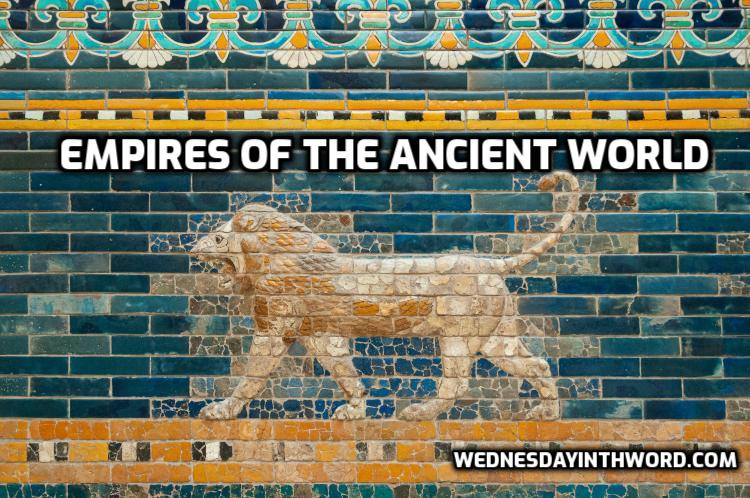Wednesday in the Word
Bible Study Library
In addition to the podcast, Wednesday in the Word offers a growing collection of resources to deepen your understanding of Scripture. Browse by topic or use the search bar to find exactly what you need.
Explore Bible Study Topics: Find the Resources You Need
Looking for in-depth Bible study materials? Browse our organized collections to find teachings, insights, and tools to unlock your Bible study. Whether you’re searching by book, theme, or topic, you’ll find valuable resources to deepen your knowledge of Scripture.
Background & History
Charts, Lists, Outlines
Maps
by Book of the Bible
Scripture Quoting Scripture
Introduction to…
Who is…
What is…
New in the Bible Study Library: Explore the Latest Articles
01 Introduction to Habakkuk
The Old Testament book of Habakkuk speaks to two of the most fundamental questions of the Christian faith: 1) How long will God let His people suffer? and 2) Why should we keep believing Him if we’re not spared the tragedies of life?
What do expiation and propitiation mean?
When studying the atonement, you’re likely to run across two technical words: expiation and propitiation. These terms tend to appear in a text without explanation. But since they are not in the Bible and they don’t often come up in daily conversation, it can be difficult to remember what they mean.
Isaiah: Outline & Highlights
Isaiah was a prophet to the Southern Kingdom (Judah) His ministry spans 50-60 years from approximately 740 – 680 BC during the reigns of Uzziah, Jotham, Ahaz and Hezekiah (kings of Judah).
How do we know the Bible is the Word of God?
How do we know the Bible is the Word of God? First, we can examine what the Bible claims about itself.
Introduction to the Trinity
How can God be one being and yet 3 persons? While not explained explicitly in any passage, the concept of the Trinity is progressively revealed in Scripture. The early church struggled for centuries to understand the doctrine of the Trinity before landing on 3 statements.
Old Testament Canon: Why these books?
The canon of Scripture is the list of all the books that belong in the Bible. The Bible, the Apocrypha and history all testify to the historical development of the Old Testament canon.
Overview of Biblical History
Whenever you study Scripture, it’s important to know where your particular passage fits into biblical history. As Karl Barth said: “The Bible is not a philosophical book, but a history book, the book of God’s mighty acts, in which God becomes knowable to us.” Here’s a simple overview of biblical history.
The Beatitudes: Matthew 5:1-12 Summary
The beatitude describe people who have saving faith and will inherit a place in the kingdom of God. Upon conversion, we don’t start perfectly, courageously and consistently displaying all these qualities of poor in spirit, meek, mourning and so forth. Rather as we grow in faith, we grow in these qualities.
Empires of the Ancient World
Over the course of biblical history, the children of Israel were challenged, threatened and conquered by several other ancient empires. Understanding something about those empires can inform your biblical understanding.
How the Apostles died
Scripture records the deaths of only 2 apostles: James (Acts 12:1-2) and Judas Iscariot (Matthew 27:5). Most of what we know about the deaths of the other apostles comes from early Christian writers and church tradition. Most scholars think the Apostle John is the only apostle who died of natural causes. The exact dates are unknown, most are estimates.
Israel’s 3 Temples
Israel had 3 temples during its Old & New Testament time period. The original temple was built by Solomon. After the exile, a second temple was built under Zerubbabel. Finally, Herod the Great expanded and enlarged the temple during his reign.
Kings of Persia in Biblical Times
A list of the Kings of Persia in biblical times and where they appear in Scripture.
Top Banner Photo by Jon Tyson on Unsplash.












